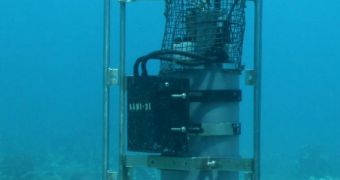Things have changed in climate researches from the way they were not ten years ago. At the time, the problem of ocean acidification was an issue known to only a few scientists and oceanographers. Now, the international scientific community recognizes that this phenomenon is one of the most important contributors and victims of global warming and climate change. While measures to mitigate the effects of these two phenomena on land have already been proposed, things move frighteningly slow as far as oceans go. That's why scientists in the United States and Europe have recently joined voices to demand more action from government on this issue, AlphaGalileo reports.
In a recent report presented at the EU Maritime Day 2010, scientists from the European Science Foundation present the devastating situation the world's oceans currently find themselves in. The experts who compiled the study say that more study and monitoring are required in order to gain a better perspective on the scale of the devastation currently wreaking havoc in coral reefs and fish populations worldwide. They say that pollution and overfishing are two of the main causes promoting the decline of the oceanic biodiversity.
On the other hand, the increasing amounts of carbon dioxide currently being pumped in the atmosphere yearly also take their toll on the ocean. When the greenhouse gas is absorbed into the water, it triggers the formation of carbonic acid as a byproduct, and this contributes to elevating the level of the overall pH. Speaking at the Maritime Day meeting, researchers emphasized the importance of governments setting up concerted, integrated efforts, aimed at researching and monitoring the effects of ocean acidification on both oceanic biodiversity and the human communities they support.
“Ocean acidification is already occurring and will get worse. And it's happening on top of global warming, so we are in double trouble. The combination of the two may be the most critical environmental and economic challenge of the century. Under a business-as-usual scenario, predictions for the end of the century are that the surface oceans will become 150 per cent more acidic – and this is a hell of a lot,” says the lead author of the investigation, professor Jelle Bijma. He holds an appointment as a biogeochemist at the Alfred Wegener Institute, in Germany.

 14 DAY TRIAL //
14 DAY TRIAL //